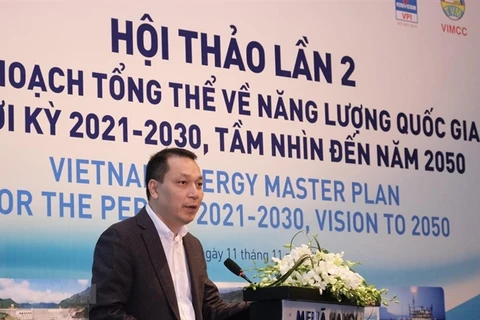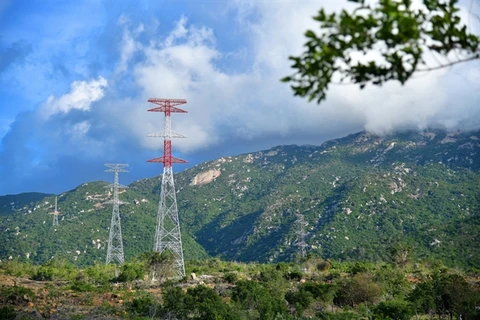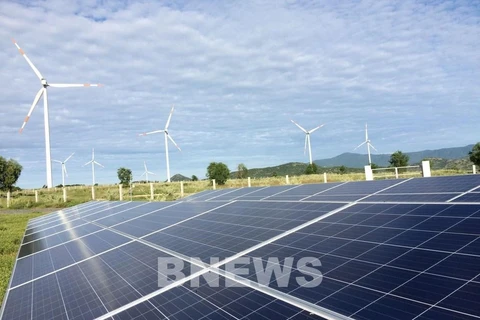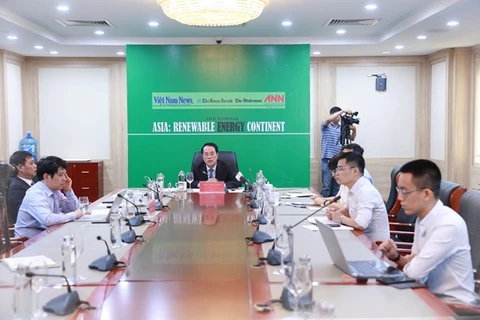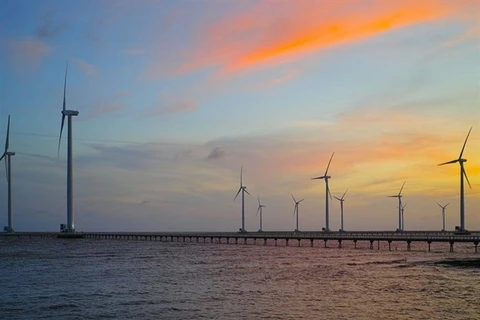Hanoi (VNA) – Deputy Prime Minister Tran Hong Ha has requested the national energy master plan for 2021 - 2030, with a vision to 2050 reflect and help implement Vietnam’s commitments on net zero emissions and in the Just Energy Transition Partnership (JETP).
Ha made the request at a meeting with the national appraisal council for the draft national energy master plan in Hanoi on June 2.
The Deputy PM said the plan should include some new viewpoints and specify important tasks in identifying the relationship and the mechanism for coordination among energy segments (coal, oil and gas, electricity, renewable energy, among others). It also needs to be consistent with other plans such as those on land use and sea space.
The national energy master plan must show a consistent mindset and help implement Vietnam’s commitments on net zero emissions and in the JETP as well as the plans for energy segments, typically the recently approved National Power Development Plan for 2021 - 2030, with a vision to 2050 (Power Plan VIII).
It is also necessary to devise measures for capitalising on fossil fuels such as coal, oil and gas in the most economically efficient manner, he stressed.
Ha demanded the Ministry of Industry and Trade, which drafts the master plan, compile a list of the ongoing key energy projects and potential ones and build criteria in terms of technology and profitability for selecting new energy or energy transition projects.
He also asked for the draft to be supplemented with the content about investment in researching scientific and technological solutions to convert primary energy sources from fossil fuels to new ones (green hydrogen, green ammonia), and developing new energy sources like nuclear power, geothermal power, wave and tidal energy, and solar thermal energy that could be exploited in the future.
According to the consulting unit, the draft master plan targets sufficient energy supply to serve domestic demand and help reach socio-economic development targets, including annual GDP growth of 7% during 2021 - 2030 and 6.5 - 7.5% during 2031 - 2050. Renewable energy is set to account for 15 - 20% of total primary energy sources by 2030 and 80 - 85% by 2050.
Under the draft plan, Vietnam will develop an independent and self-reliant energy industry and form an energy industry ecosystem based on renewable and new energy. Some clean energy centres are expected to have taken shape by 2030./.
Ha made the request at a meeting with the national appraisal council for the draft national energy master plan in Hanoi on June 2.
The Deputy PM said the plan should include some new viewpoints and specify important tasks in identifying the relationship and the mechanism for coordination among energy segments (coal, oil and gas, electricity, renewable energy, among others). It also needs to be consistent with other plans such as those on land use and sea space.
The national energy master plan must show a consistent mindset and help implement Vietnam’s commitments on net zero emissions and in the JETP as well as the plans for energy segments, typically the recently approved National Power Development Plan for 2021 - 2030, with a vision to 2050 (Power Plan VIII).
It is also necessary to devise measures for capitalising on fossil fuels such as coal, oil and gas in the most economically efficient manner, he stressed.
Ha demanded the Ministry of Industry and Trade, which drafts the master plan, compile a list of the ongoing key energy projects and potential ones and build criteria in terms of technology and profitability for selecting new energy or energy transition projects.
He also asked for the draft to be supplemented with the content about investment in researching scientific and technological solutions to convert primary energy sources from fossil fuels to new ones (green hydrogen, green ammonia), and developing new energy sources like nuclear power, geothermal power, wave and tidal energy, and solar thermal energy that could be exploited in the future.
According to the consulting unit, the draft master plan targets sufficient energy supply to serve domestic demand and help reach socio-economic development targets, including annual GDP growth of 7% during 2021 - 2030 and 6.5 - 7.5% during 2031 - 2050. Renewable energy is set to account for 15 - 20% of total primary energy sources by 2030 and 80 - 85% by 2050.
Under the draft plan, Vietnam will develop an independent and self-reliant energy industry and form an energy industry ecosystem based on renewable and new energy. Some clean energy centres are expected to have taken shape by 2030./.
VNA

